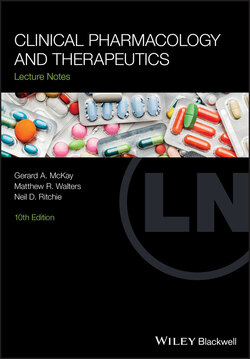Читать книгу Clinical Pharmacology and Therapeutics - Группа авторов - Страница 31
Induction
ОглавлениеEnzyme induction, which may be defined as the increase in amount and activity of drug‐metabolising enzymes, is a consequence of new protein synthesis resulting from prolonged exposure to the inducing drug. While a drug may induce its own metabolism, it can also accelerate the metabolism and clearance of unrelated compounds. Many compounds are known to act as enzyme inducers in animals at toxicological dose levels, but relatively few drugs produce clinically significant induction in humans when used at therapeutic dose levels. For practical purposes, anticonvulsants (carbamazepine, phenytoin) and rifampicin are the most potent enzyme inducers in clinical use and have produced numerous clinically significant drug interactions, related primarily to increases in the metabolism of CYP2C9, CYP2C19 and CYP3A4 substrates (including, for example, oestrogen and progesterone, the constituents of a combined oral contraceptive pill). Enzyme induction is not, however, limited to administration of prescription drugs. St John's wort, a herbal remedy, can also cause enzyme induction as can cigarette smoking (induction of CYP1A2 substrates, e.g. theophylline) and ethanol (induction of CYP2E1 but unlikely to be clinically relevant).
